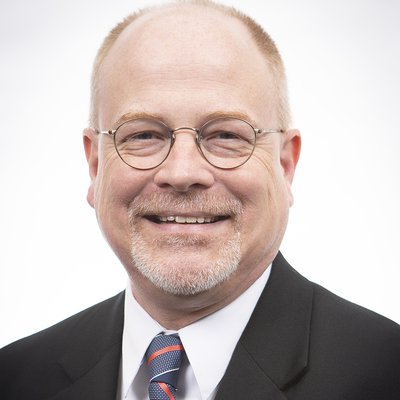Timothy Todd is a writer engaged in historical research at the Federal Reserve Bank of Kansas City. He is the author of nine books on the history of banking and financial services, including most recently, "In the Public Interest: The Tenth District’s Federal Reserve Bank.” His previous work has focused on the intersection of politics and the Fed, and the history of banking in the United States. He has published two books on the history of Black-owned banks, “External LinkA Great Moral and Social Force: A History of Black Banks,” and “External LinkLet Us Put Our Money Together.” Among his numerous presentations and media appearances, he has been a featured speaker for the Smithsonian’s African American History and Culture Museum, the Black History Museum and Cultural Center of Virginia, the Maggie L. Walker National Historic Site and the Dillard University Center for Racial Justice. In addition, he served as a writer and associate producer for a documentary about the history of the Federal Reserve that was produced by Kansas City PBS station KCPT. Prior to joining the Federal Reserve, he was a journalist for 10 years.
Publications by Tim Todd
External LinkIn the Public Interest: The Tenth District’s Federal Reserve Bank
More than a century ago, community and business leaders from across our region came together to convince the Federal Reserve’s organizers that Kansas City should be home to one of the nation’s 12 regional Federal Reserve Banks. That process, as well as similar initiatives that led to offices in Denver, Oklahoma City and Omaha, has resulted in an institution that today continues to serve the seven states of the Tenth Federal Reserve District.
External LinkA Great Moral and Social Force: A History of Black Banks
A Great Moral and Social Force: A History of Black Banks is written as a historical reference on Black community banks, and serves as a guide to help all Americans think differently about our relationships with banks. The goal of the latest volume of the Kansas City Fed's historical book series is to move across eras and examine some of the communities where banks played a dual role in establishing both economic opportunity and social equality.
By Tim Todd.
External LinkLet Us Put Our Money Together: The Founding of America’s First Black Banks
The history of America’s earliest African American banks is something that is not widely known. These banks served as an important source of credit while also offering innumerable other benefits to the consumers and communities that they served. The latest volume of the Kansas City Fed’s historical book series details the stories and accomplishments of these bankers.
External LinkState Banking and the Dawn of the U.S. Economy
Today’s community banks continue a tradition that is as old as our nation. Read about the first U.S. financial institutions in the new book State Banking and the Dawn of the U.S. Economy.
External LinkA Corollary of Accountability: A History of FOMC Policy Communication
The revelation in the early 1990s that the Federal Open Market Committee (FOMC) had privately maintained policy meeting transcripts for years created a substantial political challenge for the Federal Reserve. But it also opened the door to a new era of policy transparency that would have been unimaginable through much of the Fed’s history.
The Bank's Economic Policy Symposium has provided a unique forum for the exchange of ideas on important policy issues of interest to central banks around the world. This book tells the history of the symposium through the years.
External LinkUnder Pressure: Politics and the Federal Reserve During the 1990-1991 Recession
During the U.S. recession of 1990-91, the Federal Reserve came under intense pressure from political forces seeking to influence monetary policy. This book examines the role of politics on the Federal Open Market Committee at that time and highlights the importance of the Fed's independence and decentralized structure.
External LinkThe Balance of Power: The Political Fight for an Independent Central Bank
This book provides an overview of the relationship between the Federal Reserve's political and independent elements.
External LinkConfidence Restored: The History of the Tenth District's Federal Reserve Bank
This book offers a detailed look at the Kansas City Fed's history through the leaders and innovation that shaped our organization into what it is today.
External LinkIntegrity, Fairness and Resolve: Lessons from Bill Taylor and the Last Financial Crisis
This brief biography focuses on the leadership of the Fed's long-time head of banking supervision during the financial crisis of the 1980s and the parallels to today's turmoil.

